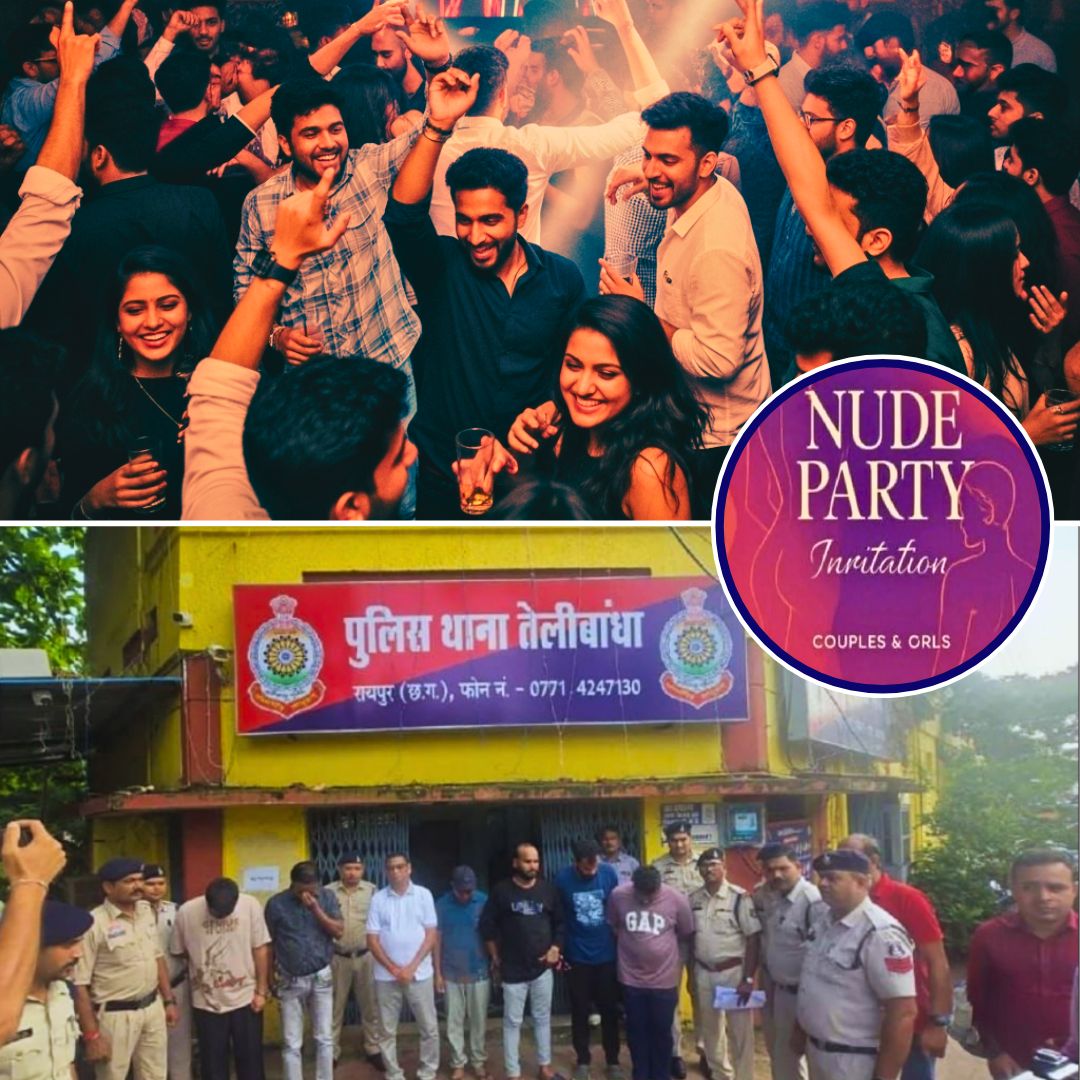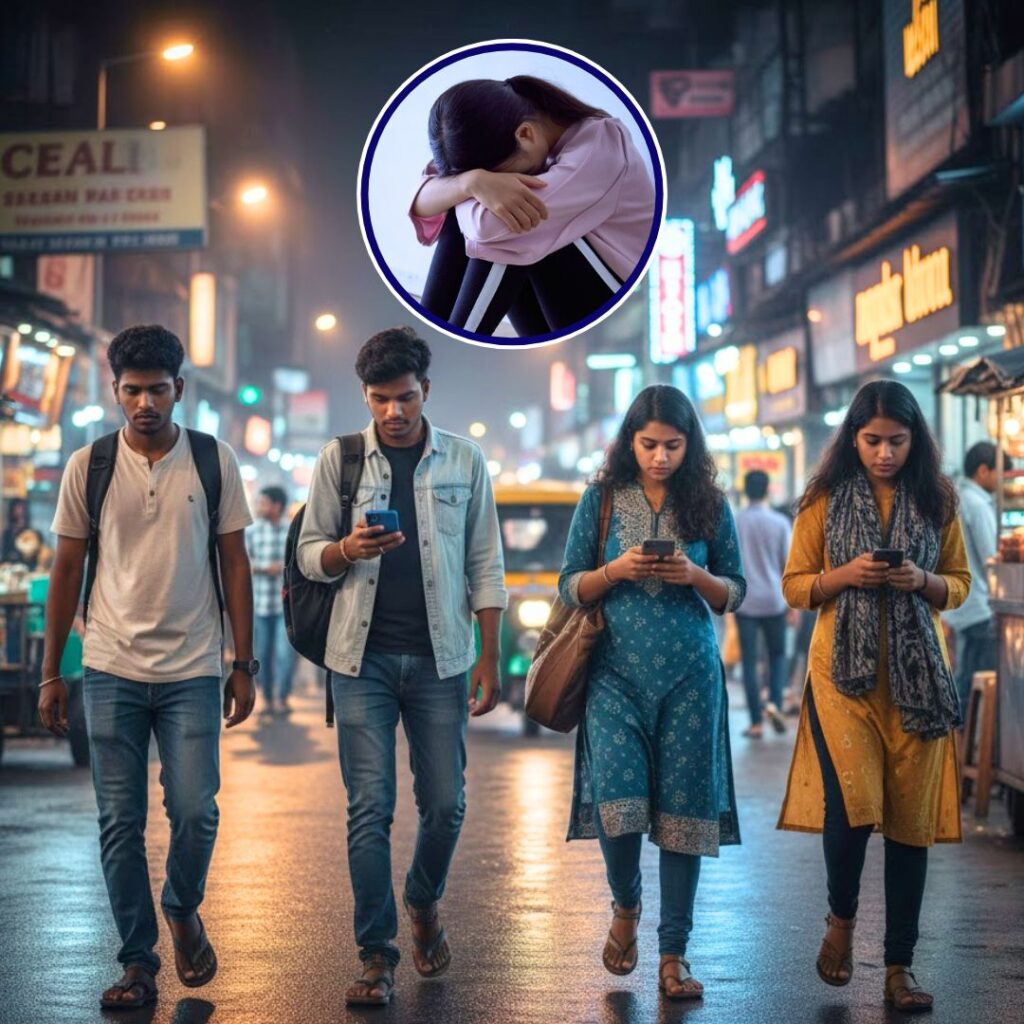A poster advertising a “Nude Party” allegedly set for September 21, 2025, in Raipur, Chhattisgarh, caused widespread outrage after going viral on social media. Police arrested six people linked to the party’s organisation, including a club manager and others suspected to be involved in planning and promoting the event.
The Chhattisgarh State Women’s Commission has taken note and demanded a detailed police report. The party is cancelled and authorities continue investigation amid political uproar and public concern over morality and digital responsibility.
Poster Sparks Social Media Outrage and Political Backlash
The controversial poster invited young men and women to a “Nude Party” hosted by the ‘Aparichit Club’ promising entry from 4 pm till late night, with an entry fee of Rs 40,000 inclusive of overnight accommodation. The poster promised liquor discounts for female attendees and was circulated extensively on WhatsApp and Instagram before activists and political groups intervened.
Raipur Police registered FIRs and detained six people including Hyper Club manager James Back, and others linked to the event for questioning. State Congress chief Deepak Baij criticised the state BJP administration, calling the event an example of rising lawlessness and govt’s failure to protect cultural values. The BJP government condemned the event and vowed strict action.
Hidden Operations, Drug Cartel Links and Intense Probe
Police investigations revealed that all event details, including venue, were deliberately kept secret, shared only with registered members hours before the scheduled time. Mobile phones were banned at the venue to prevent exposure and recordings. There are suspicions that the organisers are connected to drug cartels supplying illicit substances commonly abused at such high-profile parties.
The event was nicknamed the ‘Stranger Party’ and reportedly had artistes from Mumbai and Bangalore lined up to perform. Authorities cancelled the party following public uproar and intensified probe, with daily reports demanded by the State Women’s Commission under chairperson Dr Kiranmayi Nayak. She warned about possible gang involvement and drew parallels with past incidents of public indecency in India.
The Logical Indian’s Perspective
This controversy highlights the urgent need for balanced regulation of digital and social content to protect community ethics while guarding personal freedoms. Mere arrests and outrage do not fully address the root causes of such incidents, which reflect broader societal challenges including digital ethics, youth vulnerability, and media responsibility.
Safe, educated online engagement paired with legal vigilance is essential to prevent exploitation without suppressing expression.












